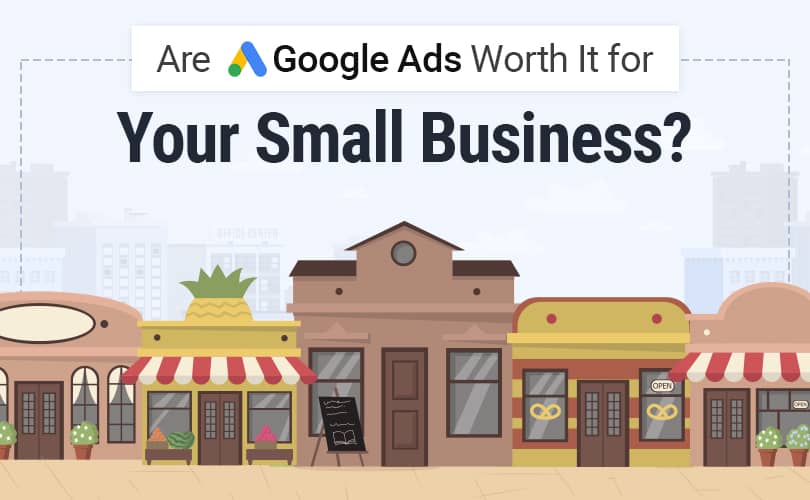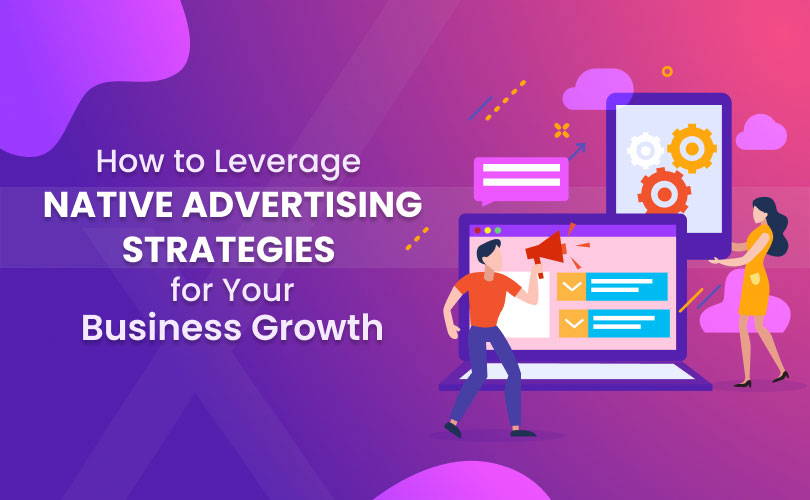Are Google Ads Worth It for Your Small Business?

In terms of digital marketing effectiveness for businesses, it’s no secret that Google Ads is one of the most important PPC advertising opportunities that exists anywhere. And not only do large enterprises use Google Ads to drive traffic to their websites, but more and more local businesses are taking advantage, as well. But you’re probably asking yourself, “Are Google Ads worth it for MY business?” In a word, the answer is YES! Google Ads are definitely worth it for a business of practically any size or scope (including yours!), as long as the ads are designed and managed correctly.
The Google Ads platform has long been considered as an excellent place for driving relevant traffic to your business, generating leads, and ultimately helping to convert more sales. But alongside the successes, you may have heard some horror stories too: failed campaigns, sinking revenue, high cost, negative ROI, or others.
Do Google Ads Actually Work for Small Businesses?
As long as you’ve got a robust strategy for focusing on proper content, keywords, audiences, location targeting, etc., then Google Ads can be VERY effective for your small business. You can get more impressions, clicks, and leads through Google by maintain a smart account structure with the right targeting options – even on a small budget!
Here are a few key Google Ads tips for small businesses:
1. Establish your objectives for Google Ads
Before choosing some keywords and running with a PPC campaign, it’s important to begin by stipulating your objectives. What are your actual campaign goals? What types of results are you anticipating to produce? Some possible objectives could include lead generation, email sign-ups, account registrations, booked appointments, or even an increase in sales.
If you’ll start by determining your goal(s), budget, target locations, and which products or services you actually want to promote, this should guide your campaign and help you to decide which keywords to include.
2. Ensure that your website has a quality landing page for customers to click to
The fact of the matter is that online attention span is really quite short. Your users will click off your website pretty quickly if your ad doesn’t lead them to a page which truly provides what they were searching for. Your landing page experience will also affect the overall Quality Score of your ad, which also helps to determine where your ad ranks on the search results page. For example, if you’re a roofing services provider and you’re bidding on keywords around ‘residential metal roofing,’ if your ad sends a user to a ‘commercial roofing’ page … then you’ve probably lost that user. This is seen as bad user experience, and the result is that you’ve probably wasted money on this click. This is definitely not a good situation for a small business.
Your landing page should clearly communicate the needs of your user, and should also display some clear calls-to-action (CTAs) which are strategically placed on the page. Doing so will enhance the user experience, and will also result in better lead generation and sales conversion for your business.
3. Do some deeper keyword research to decide which terms upon which you want to bid
Bidding on highly-competitive keywords with plenty of search volume can get expensive in a hurry, if not conducted with proper forethought and management. Bear in mind that a click doesn’t necessarily guarantee a lead or a sale. You know your business in and out, but it takes a little more effort in order to understand how your potential customers actually see your advertised products or services.
If you’re able to target the proper keywords with PPC ads, you can get in front of your potential customer at the perfect time to help influence their purchasing decisions. For example, the people who are searching for “buy Nike shoes online” or “metal roofing installation price” are probably looking to shop for shoes within the near future, or are ready to make a decision about who to choose to install their new metal roof.
Performing deep keyword research is critical for any small business wanting to take advantage of Google Ads, in order to ensure that your ad displays for the most relevant searches.
During your keyword research, you’re likely to discover some keywords which simply aren’t relevant for your business – these are negative keywords which you should also take the time to add to your account. For example, if you don’t sell floral pattern shirts, do you want to waste money on ‘floral’ terms? Of course not! Adding negative keywords to your account is an important, ongoing task which can actually save your small business some unnecessary ad spend money over time.
4. Set limits by location and time
Adding the targeting location of your business will narrow your search even further. This will help in getting more relevant traffic and leads to your business. Google offers various options in Campaigns that enable users to focus on consumers’ specific postal codes, radius targeting, and more.
Google ads even allow you to show your ads on specific days, and even hours of the day. You can run ads only during the time that your business is open if you prefer. You can also choose to optimize your campaign by only selecting the days and hours during which you tend to receive the most leads or the best sales conversions. For example, if you’re open Mon – Fri, 8 am – 6 pm and your lunch break is between 12 pm-1 pm, perhaps you don’t want to receive any calls during your lunch break. No problem – you can schedule your ads to only display Monday – Friday, 8 am – 12 pm & 1 pm – 6 pm. Your ads won’t be visible between 12 pm -1 pm on those days, and they won’t display on Saturday or Sunday, either.
These features help to prevent a small business like yours from spending money on user clicks that don’t fall within your normal operating hours. Why does that matter? Many users are more likely to engage with a live call than to have to leave a message through an automated system.
5. You really can get effective results
One of the great things about Google Ads is that, in many cases, the results can almost be instantaneous.
All you need do is set up proper tracking for leads or sales, create your campaign and ad group, add the right target keywords, calculate & enter your daily budget, design some effective ad copies … and you’re good to go! You can potentially generate more calls, leads or sales from your campaign within just a day or two after launch!
That being said, if you’re looking to enhance your search result rankings (including SEO), that will require a little more time and effort. With SEO, there are MANY more ranking factors to consider, and you’ll honestly be better off to enlist the help of a digital marketing professional like Cibirix.
But with the right products & services, the right marketing strategy & know-how, the right ad copy, and the right landing pages, Google Ads can be a very effective lead generator and sales generator for your business!
Conclusion
Google Ads are really one of the best ways to drive in new traffic, generate new leads, and create more sales for your small business. But how will you know whether this strategy will be effective for your particular business? Here are a few key points to keep in mind as you move forward:
- Analyze your current advertising budget – what’s working, and what isn’t?
- Research your competition and see whether they’re using Google ads, and if so, where it’s working for them.
- Research the keywords, location, and times you should target for your business.
- If you’re still not sure at this point, it may simply be best to test the waters and give it a go!
Paid ads, when done right, can prove to be a very cost-effective way to generate leads, acquire new customers, and produce more sales for your small business. You also have the ability to measure the ROI of every single ad you run – something that can’t be said for organic results alone. Through the results of your findings, you can shut off any underperforming ads, and also choose to double down on the ads that are showing the most positive results for your business.
Ready to give it a go, but not sure what your next steps are at this point? The Cibirix team is here to help! If you need some assistance in drawing up the best game plan for utilizing Google Ads – as well as with creating the right digital assets to fuel your success – then you’ve found the right small-to-medium-sized business partner! Reach out to our team today!
About Author

Prashant Yadu
Prashant Yadu is a Social Media Analyst at Cibirix, and he’s now been part of our team for over five years. His particular area of focus for us revolves around Facebook advertising. With the help of his analytical skills and creative ideas, Prashant has helped to generate some remarkable results for our marketing clients. Before diving deeper into social media marketing, Prashant’s work focused on search engine optimization, where he handled both On-Page & Off-Page SEO for business clients. When he’s not hard at work, Prashant enjoys watching movies, listening to music, and hanging out with friends/family.


